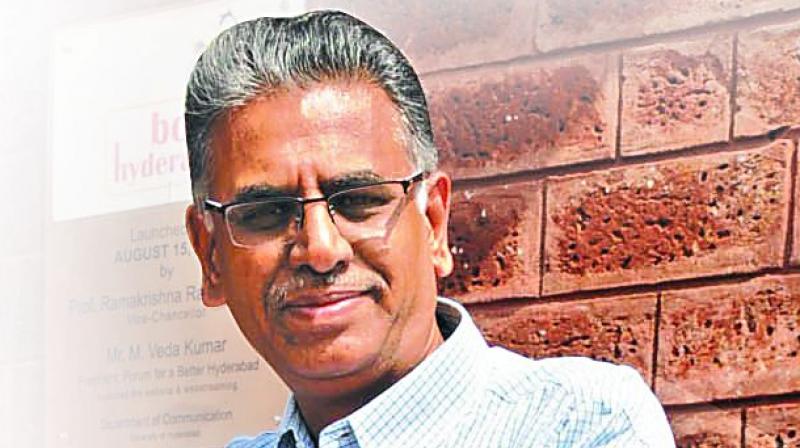The voice of India in Germany

Recently, the Head of Communication at the University of Hyderabad, Professor Vinod Pavarala was invited as a key speaker for one of the conferences at the world’s largest Radio Art festival in Germany. “The festival Radio Revolten had radio enthusiasts from over 40 countries, so I was truly gratified by the invitation,” says Vinod, who is also the UNESCO chair on community media at the university.
Community Radio is a medium that enables the marginalised population get their voice heard. It is not permitted to broadcast news or stories that are political in nature, and it only addresses issues of development, social change and to some extent, even culture. “The mainstream media has its own compulsions due to which some voices go unheard. Community radio strives to counter this,” explains Vinod.
Being one of the pioneers of community radio in India, the professor says that this medium is not only empowering, but also necessary. “People I met at the conference were pleasantly surprised that there are as many as 200 community radio stations in India,” he says and adds, “Even though that is a more than what most countries have, it is still not enough for the population of India. There is a possibility for up to 4000 stations here.”
The recent development is only another feather to Vinod’s cap. The man is not new to such laurels, and deservingly so. He, along with his colleague, Kanchan K. Malik, have authored Other Voices, a book that is considered as the bible of community radio.
The UNESCO chair is the only one of its kind in the world that does participatory research, teaching, outreach and knowledge sharing. The ‘tool kit’ for proper functioning community radio stations that was developed by the Chair has been translated in various languages and is also used in Germany, Bangladesh, and a few African Countries.
Vinod was introduced to the idea of community radio when he was doing his PhD in the University of Pittsburgh. “I was working on something completely unrelated to it at the time, but when I joined University of Hyderabad in 1995, I was trying to carve out a research area for myself, and the Supreme Court declared that Airways would now be public. That sealed the deal for me,” he says.
About the festival, Vinod says, “It was a wonderful experience. Radio Art is a concept that is unknown in India and very few people call themselves ‘radio artistes’. This festival was an unconventional form of appreciating art where you can ‘listen to’ the installations and not just view them. For example, one artiste tried to play with the concept of time and space by displaying many different kinds of radios. From each one of them, voices saying ‘Radio Shanghai’ and ‘Radio Berlin’ could be heard, enabling people to experiences radio stations from all across the world.”

